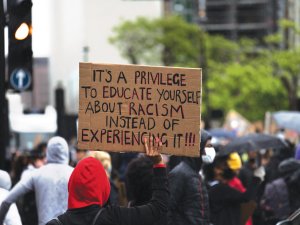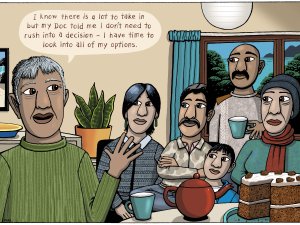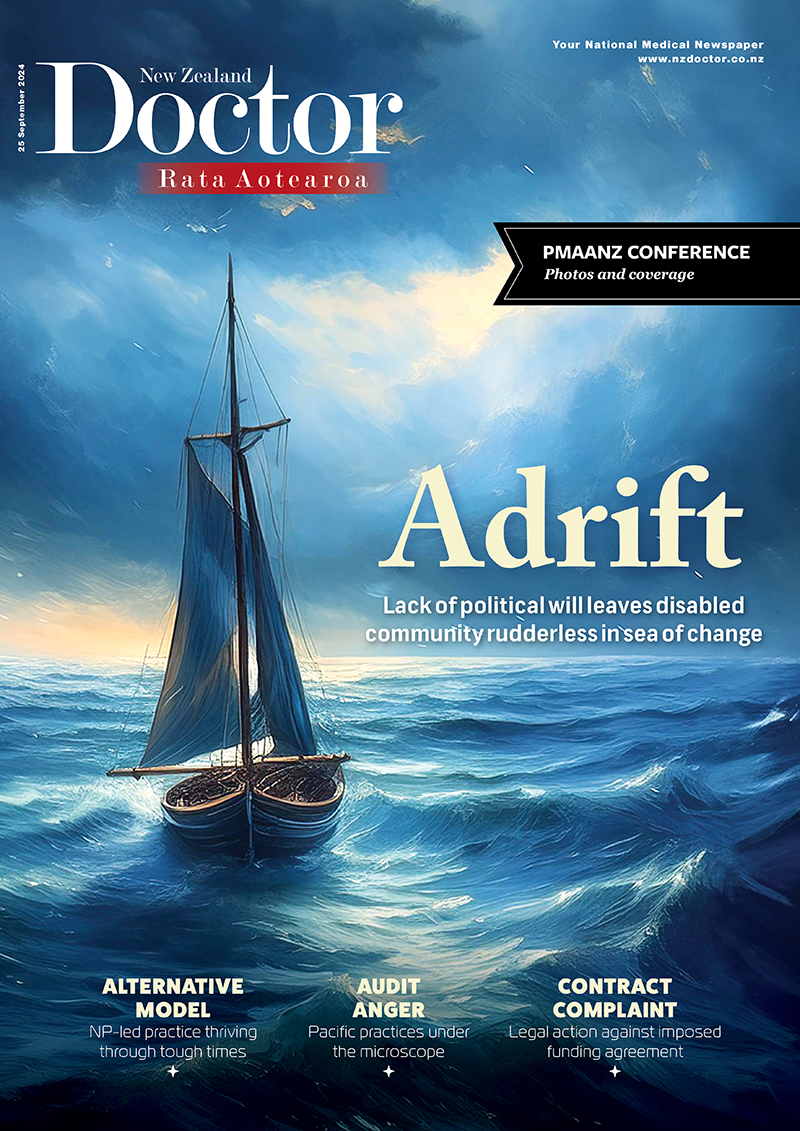Prostate cancer consultations are common in primary care and there is no one approach to testing and treatment that fits all patients. Urologist Simon van Rij discusses the key considerations and options for personalised care, appropriate investigation and treatment
The men you did not meet on the campaign trail
The men you did not meet on the campaign trail

Politicians wanting to get tough on crime always makes me think of patients I have met writes Lucy O’Hagan
...you did not meet on the campaign trail
He’s the same age as my son, lean and strong. He calls me Miss. He fell over and caught his cheek on a fence post. He says. A gaping, jagged laceration.
He wipes the blood off his patched jacket, places it neatly on the treatment room bed, and then lies on it.
He winces at the injection and clings to the nurse’s hand for the hurty bits.
One must take care when stitching up a face. I don’t want him scarred. He has a cross on each cheek, and I don’t want one of them to end up crooked.
He tells me about his four-year-old daughter. She’s doing good at kohanga and lives with Nan. His dad has never been around. His mum got lost along the way, she hasn’t seen her moko.
Thank you Miss, he says, and promises he won’t try taking out the stitches himself.
He is collected by a man in dark glasses. The patched ones leave together.
...you did not meet on the campaign trail
He’s a hard worker, but the gangs are never far away for our kids, he says. They’re our whanaunga, too
I’m in that bad moment, calling out a name with six multi-vowelled syllables, hoping someone will recognise themselves and walk towards the Pākehā doctor. I must have got it right because a nice-looking fellow jumps out of the chair with a loud “kia ora”.
He wants to work, but he’s been short of breath for months. He tried to go back to scaffolding but couldn’t do it. He rested for weeks to see if it would get better and waited a month for an appointment, but he’s here.
I ask too many questions, trying to fill the gaps, so he has to say he was in prison last year.
He’s also got a bad left hip. I whisper at him, trying to get the story; 10 years ago, he was run down by the mob, left for dead, crawled home and put himself to bed for three months. He didn’t want the police to know. No medical care. No ACC claim.
I nearly weep when I hear the loud pansystolic murmur at the apex of his heart. It’s a very long way from me getting his name right to a good health outcome: a cardiology appointment, an echocardiogram, a cardiothoracic surgical clinic and an operation to replace a valve. I hope we get there.
He tells me about his son; he’s 16, just had a baby, living with the mum in emergency housing – a motel with no kitchen. The microwave is broken, but the landlord won’t get a new one, and they must wash the baby’s bottles in the bathroom sink. But they are doing good with the baby.
“He’s a hard worker, my son. He’s on the roads doing the stop/go sign, but he wants something better.” Perhaps he could study, but that is a thing that no one in his family has ever done. It’s hard to get past the stop/go sign.
He’s a hard worker, “but the gangs are never far away for our kids”, he says. They’re our whanaunga, too. Of course.
I think of my own boys and imagine that: the gangs always close by.
I send him the link for the local iwi’s apprenticeship programme. I hope he has data on his phone.
...you did not meet on the campaign trail
In the 1960s, he was adopted into a Pākehā family and lost who he was. He was beaten for losing his way, then raped in an abandoned warehouse while sniffing glue aged 12. But that was just the beginning: police, boys’ homes, prison. He’s been out of all that for five years, lying low, tinkering with cars, helping people with no money.
His right hand says hate, just below the swastika. Today, I’m holding the hate hand. The rest of his huge body is quivering, great heaving sobs; a string of snot dribbles down the chin that says fuck.
He is giving evidence to the Royal Commission of Inquiry into Abuse in State Care. It’s too hard: he has to sleep sitting up, alert, he’s terrified to leave the house. He doesn’t want to drink, but a month ago, he did and punched a man for hitting a woman. Did the police know any of his story when they locked him up?
Did the judge know this man was reliving trauma at the hands of the state when he decided he needed another month in prison? Does he have supportive, articulate whānau who can stand up in a courtroom, tell the judge his story, and be trusted? Does a man so ashamed of the rapes and beatings he has received, want to reveal that out loud in a courtroom? Would anyone believe him?
The judge only saw what he had done to others, the hate hand. Never mind that his left hand says love.
Getting tough on crime means getting tough on people who are themselves trauma victims.
Maybe that’s why it doesn’t work.
Patient stories related in this article are drawn from a multitude of interactions and do not represent specific individuals
Lucy O’Hagan is a medical educator and specialist GP working in the Wellington region
We're publishing this article as a FREE READ so it is FREE to read and EASY to share more widely. Please support us and our journalism – subscribe here
One of the benefits of subscribing is you will also be able to share your thoughts about what you read with others in our Comment Stream. You can also take notes on what you read with Capture
TELL US WHAT YOU THINK
You can add your comments using the comment function below, or by sending a Letter to the Editor to editor@nzdoctor.co.nz







